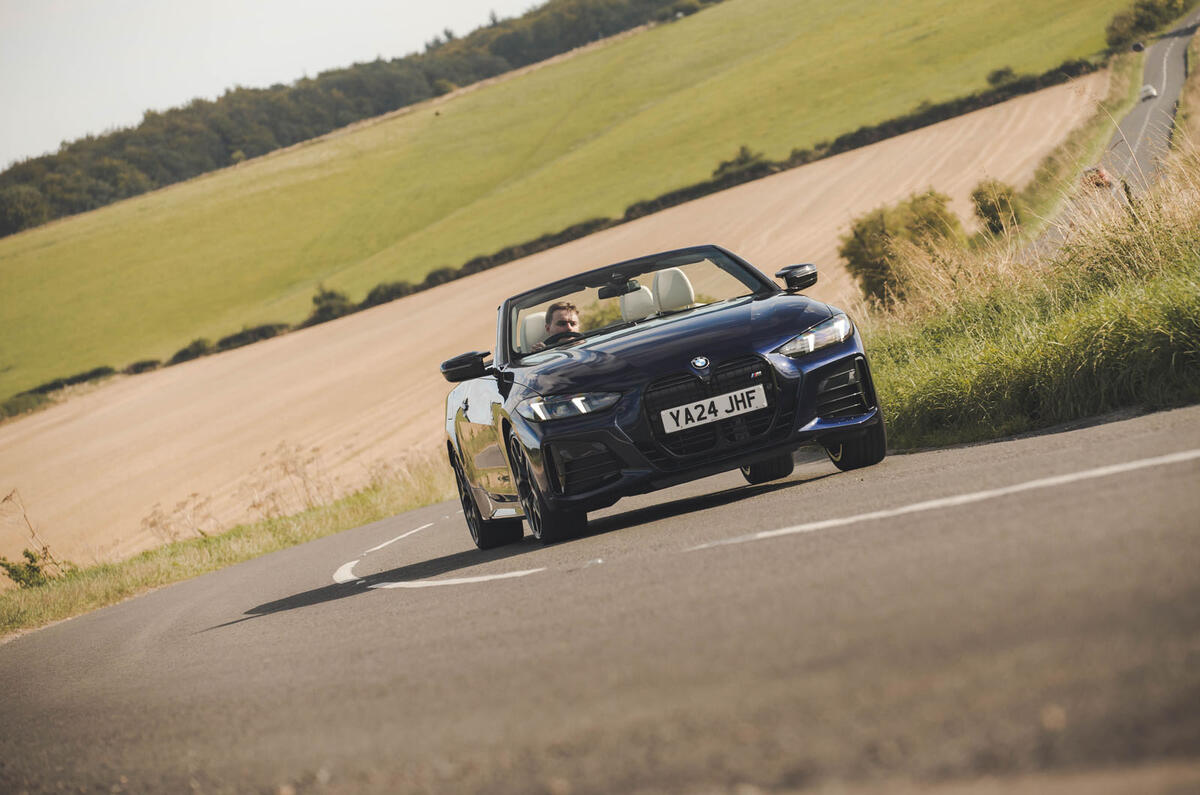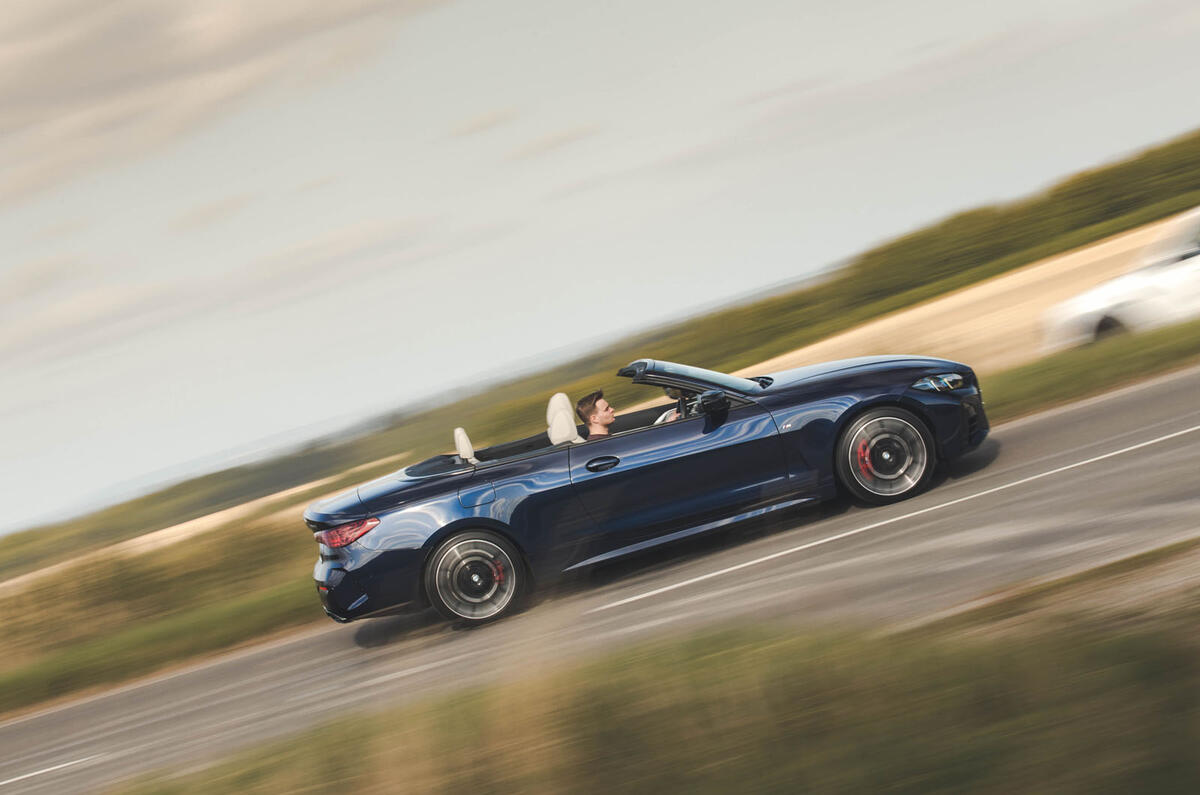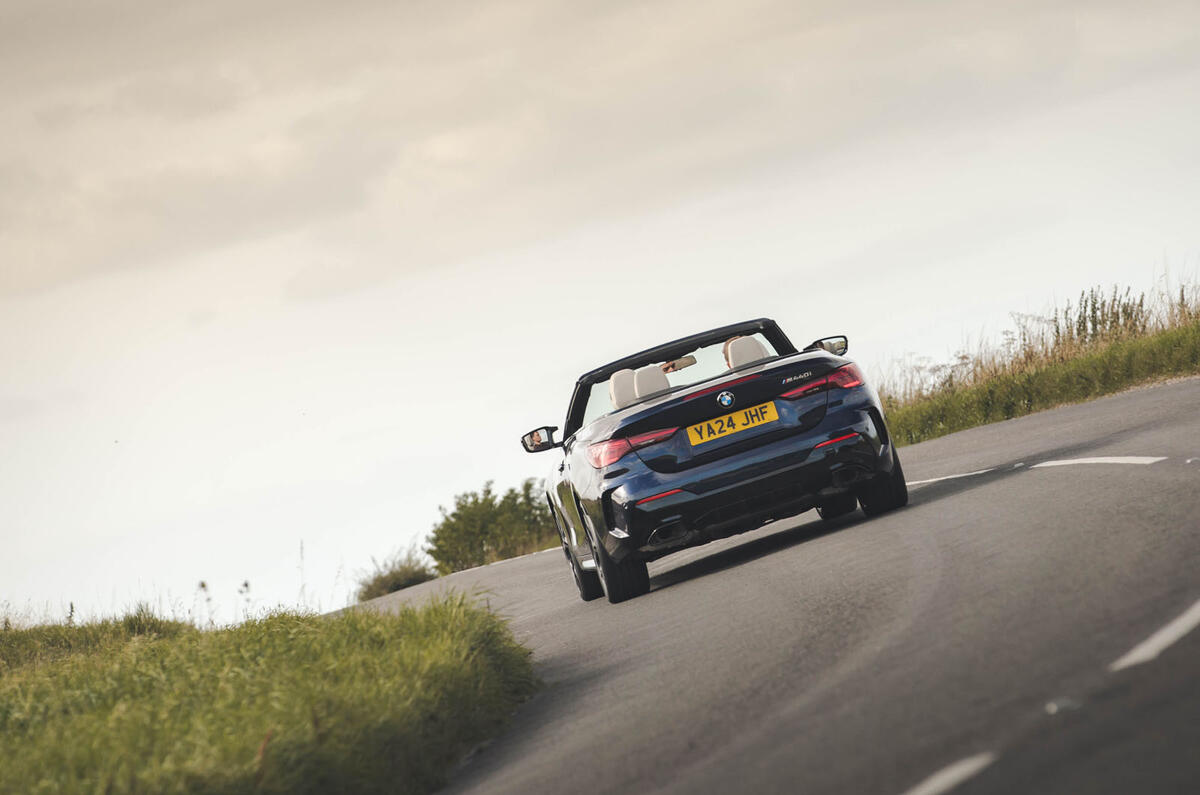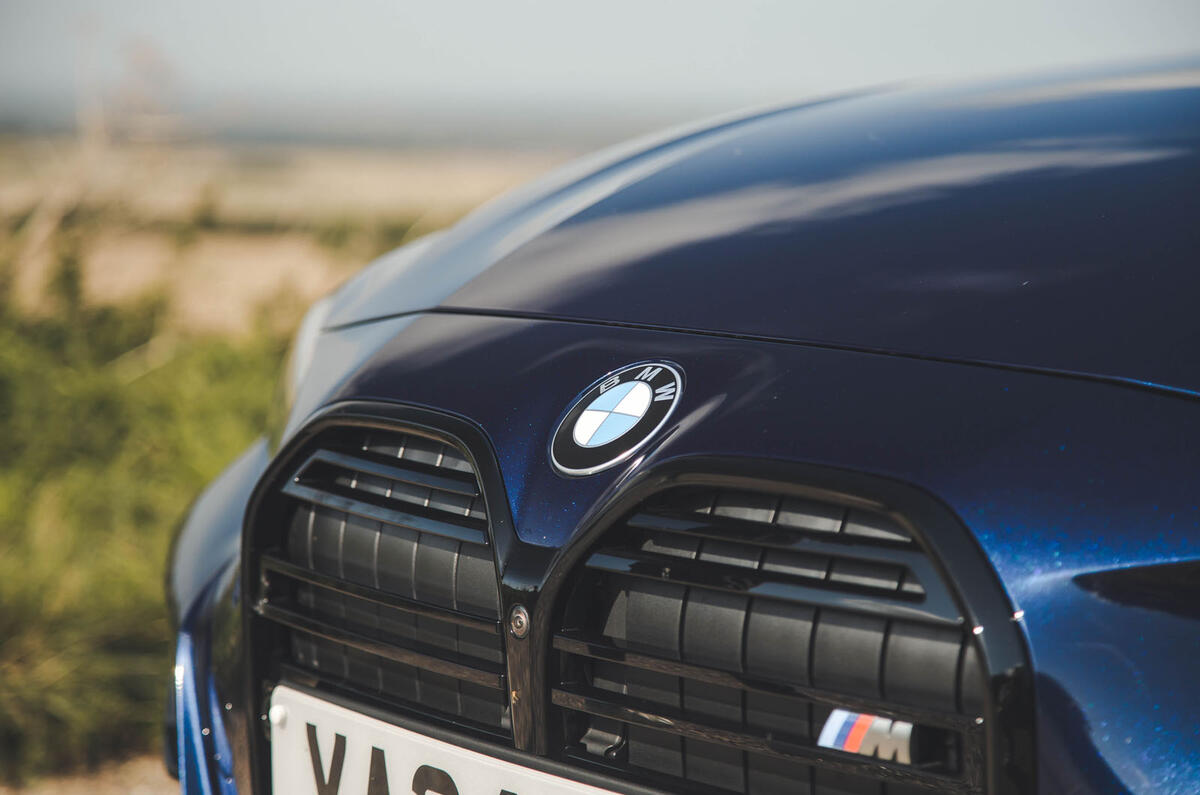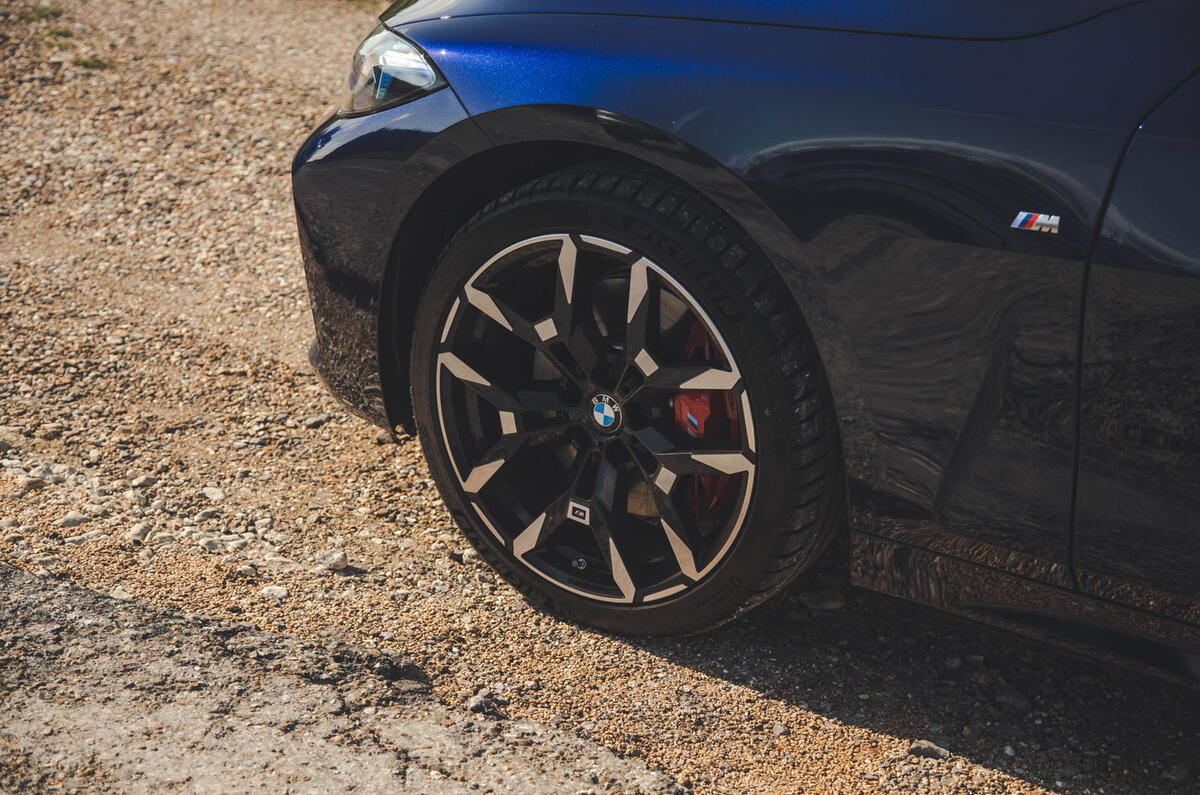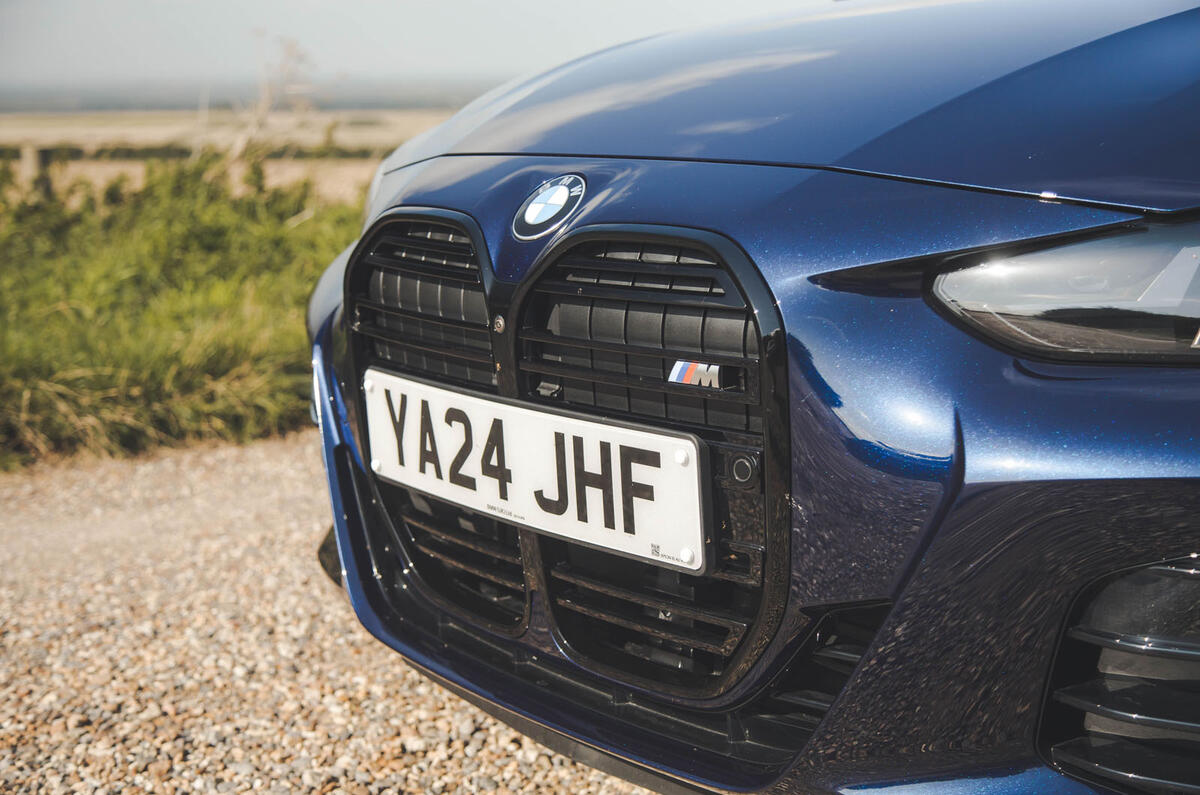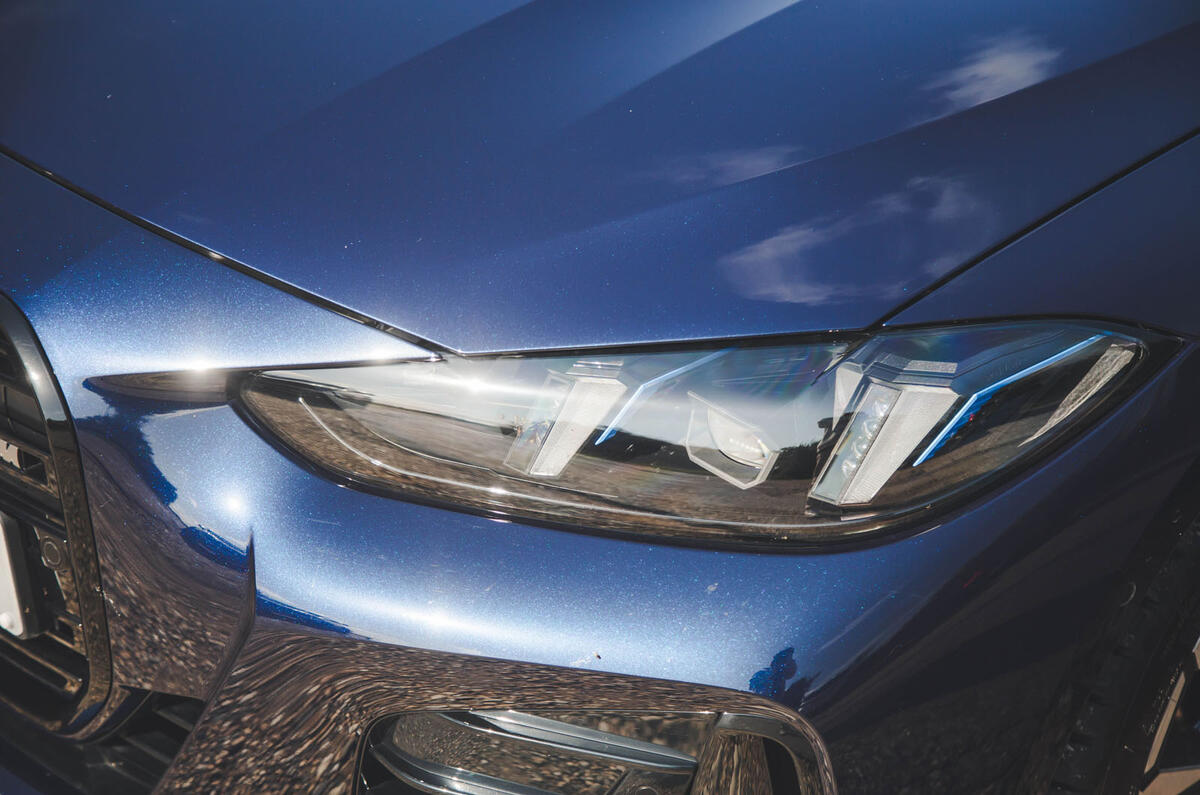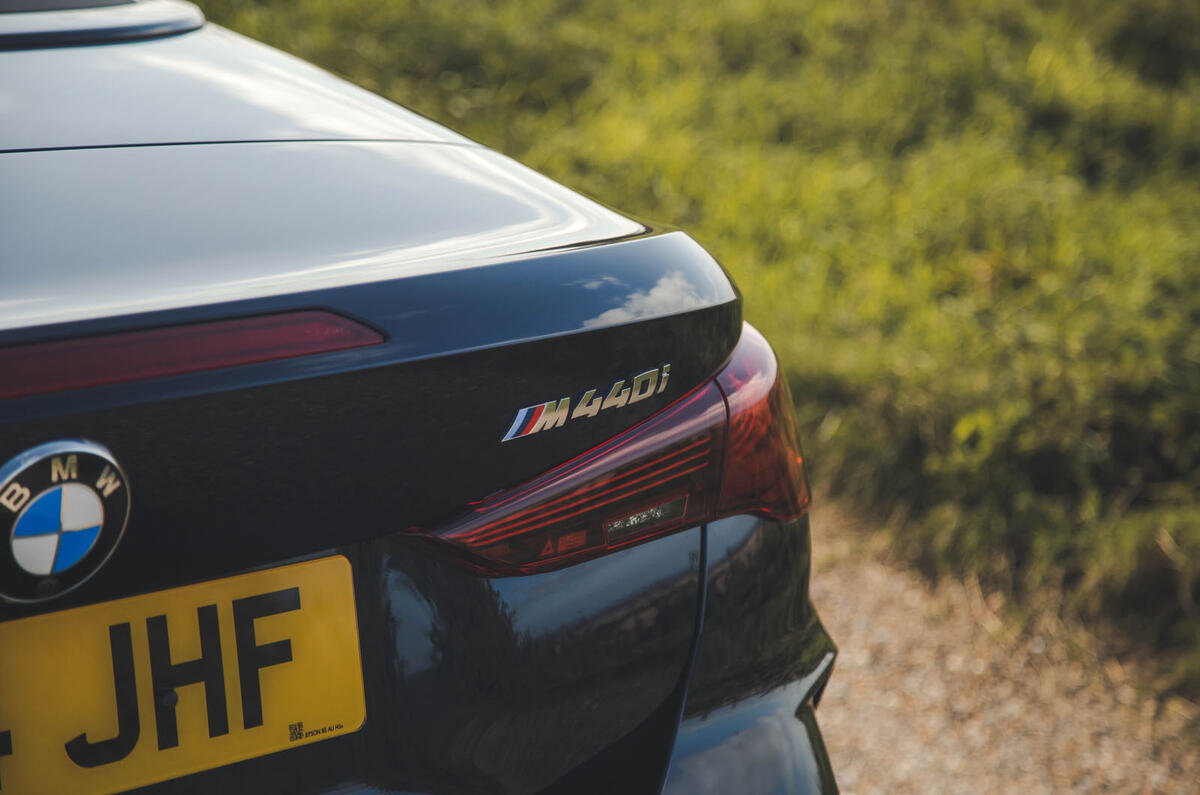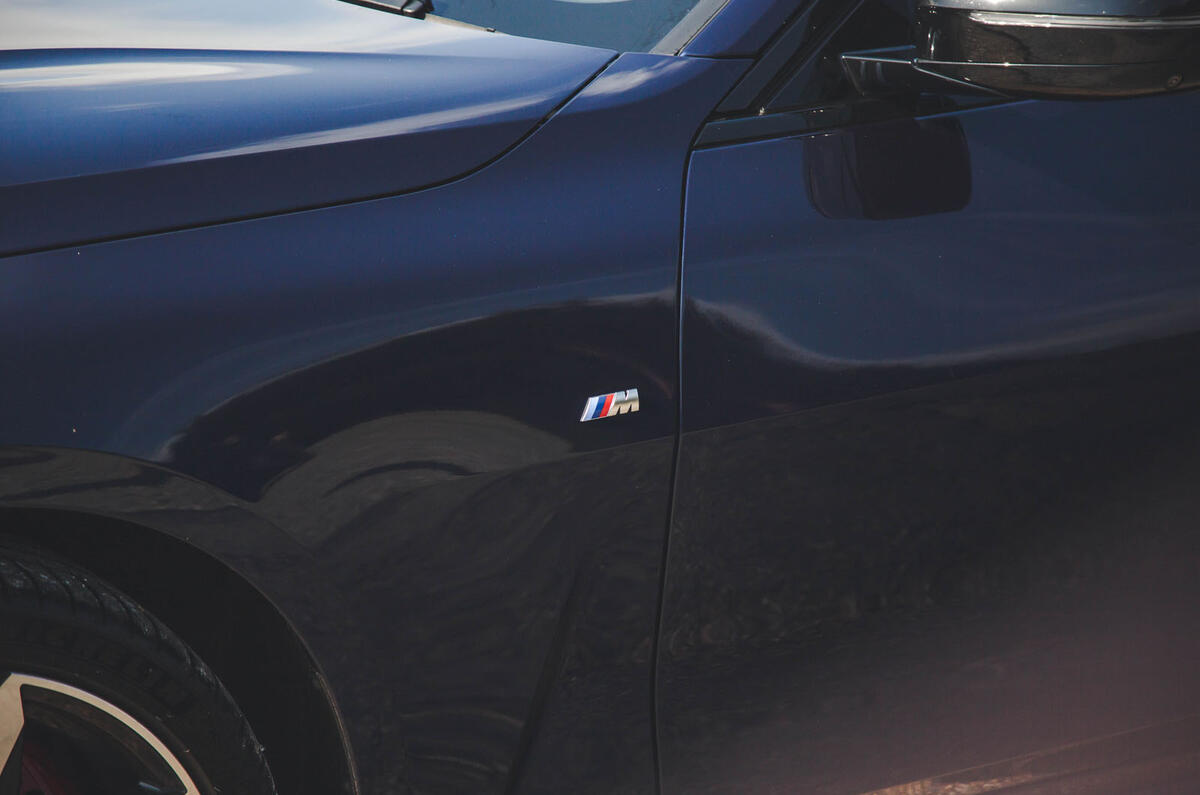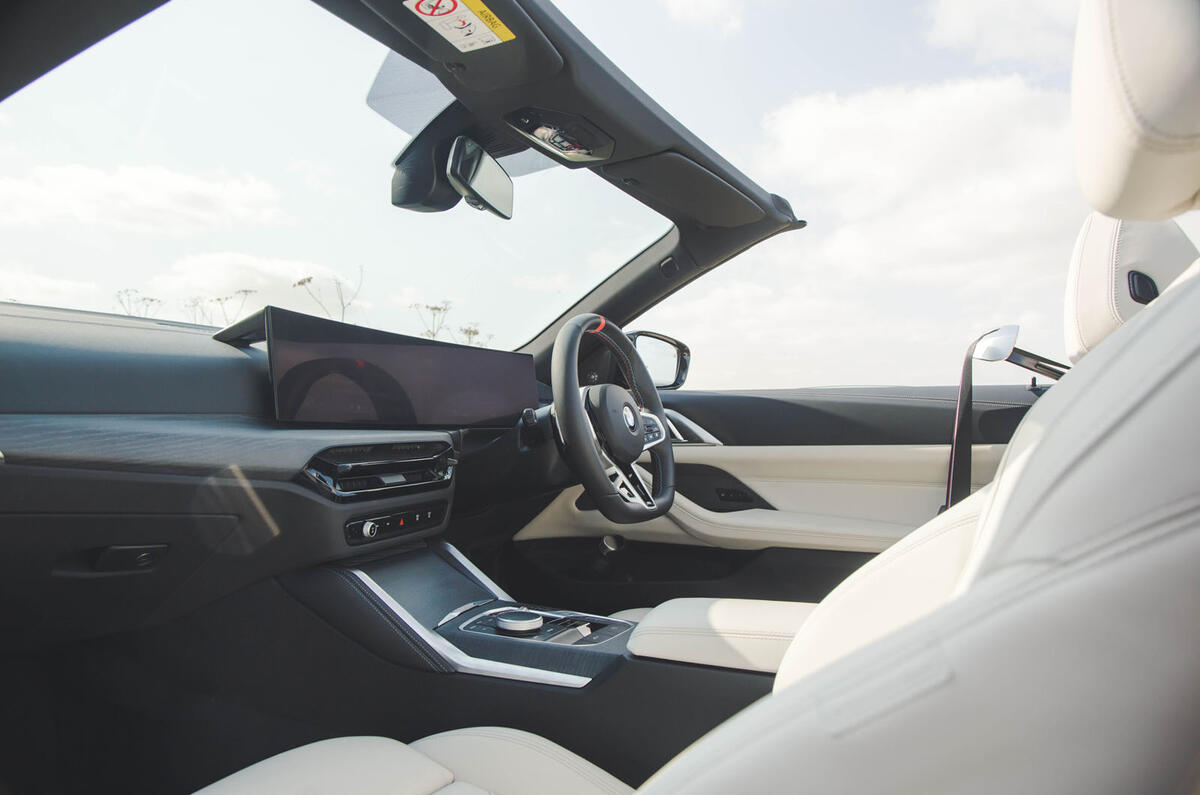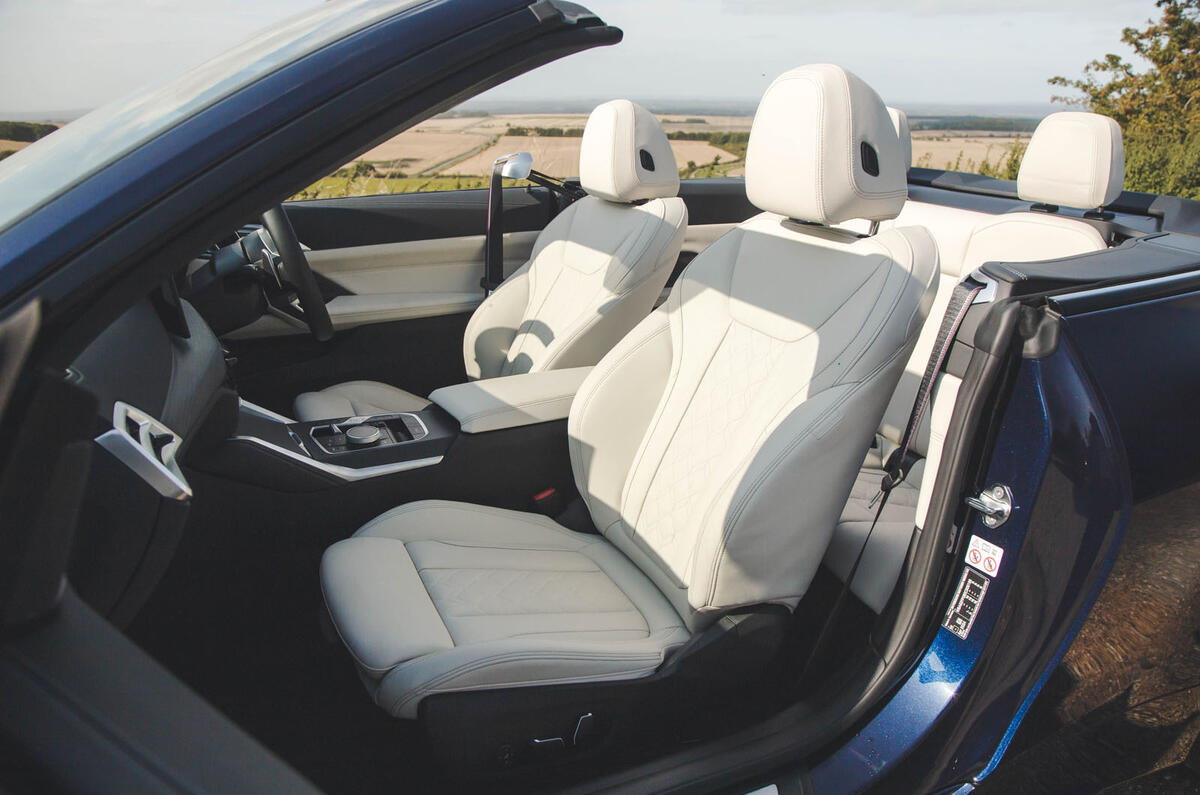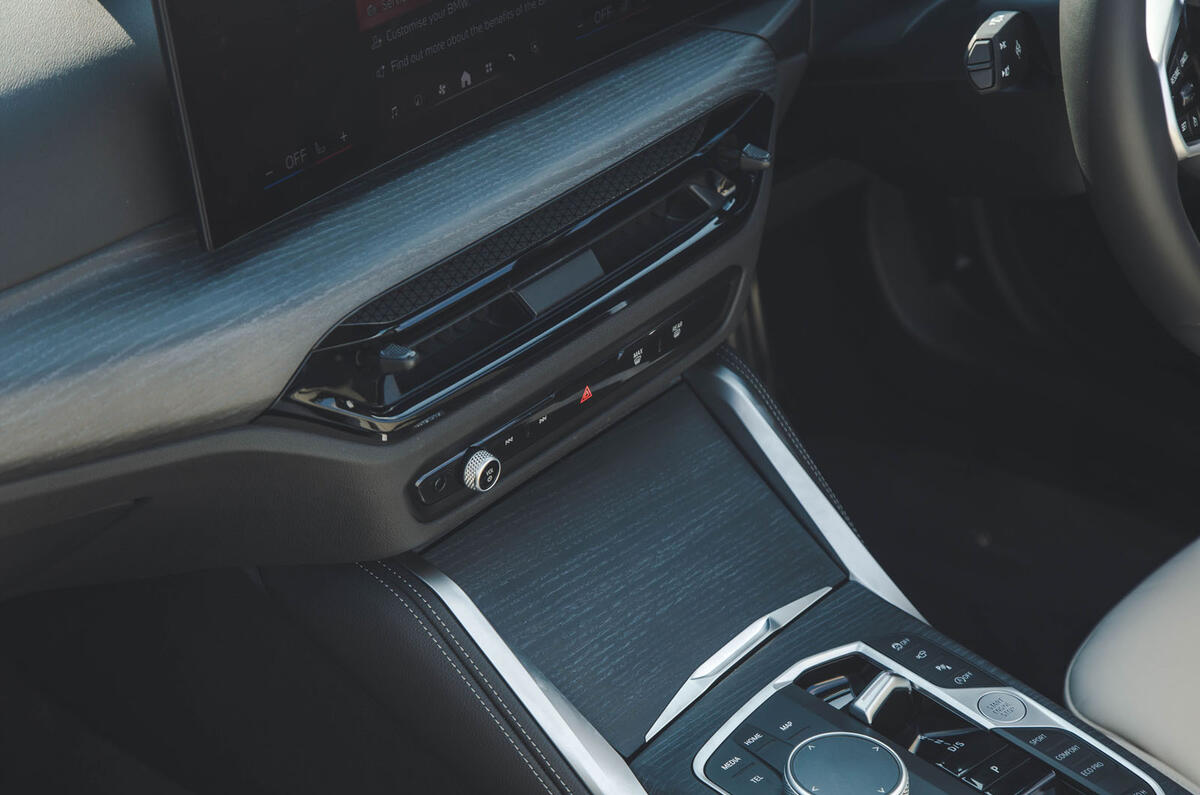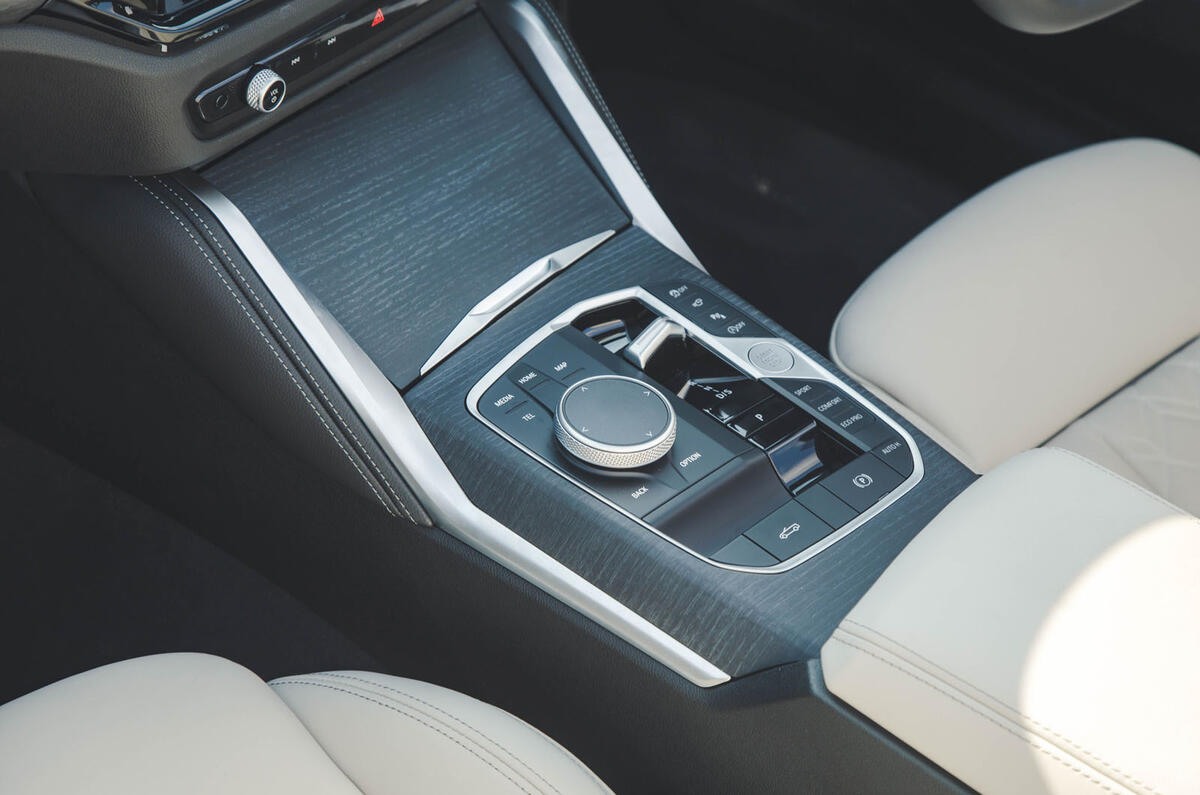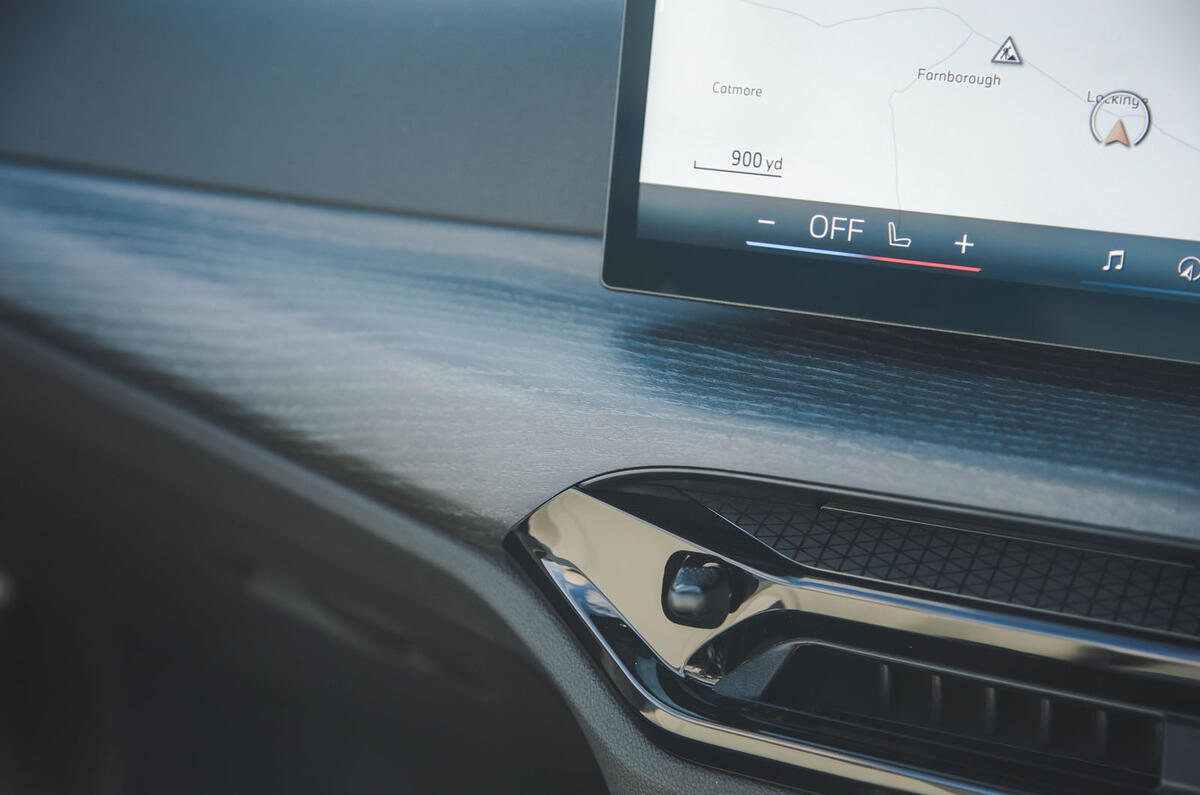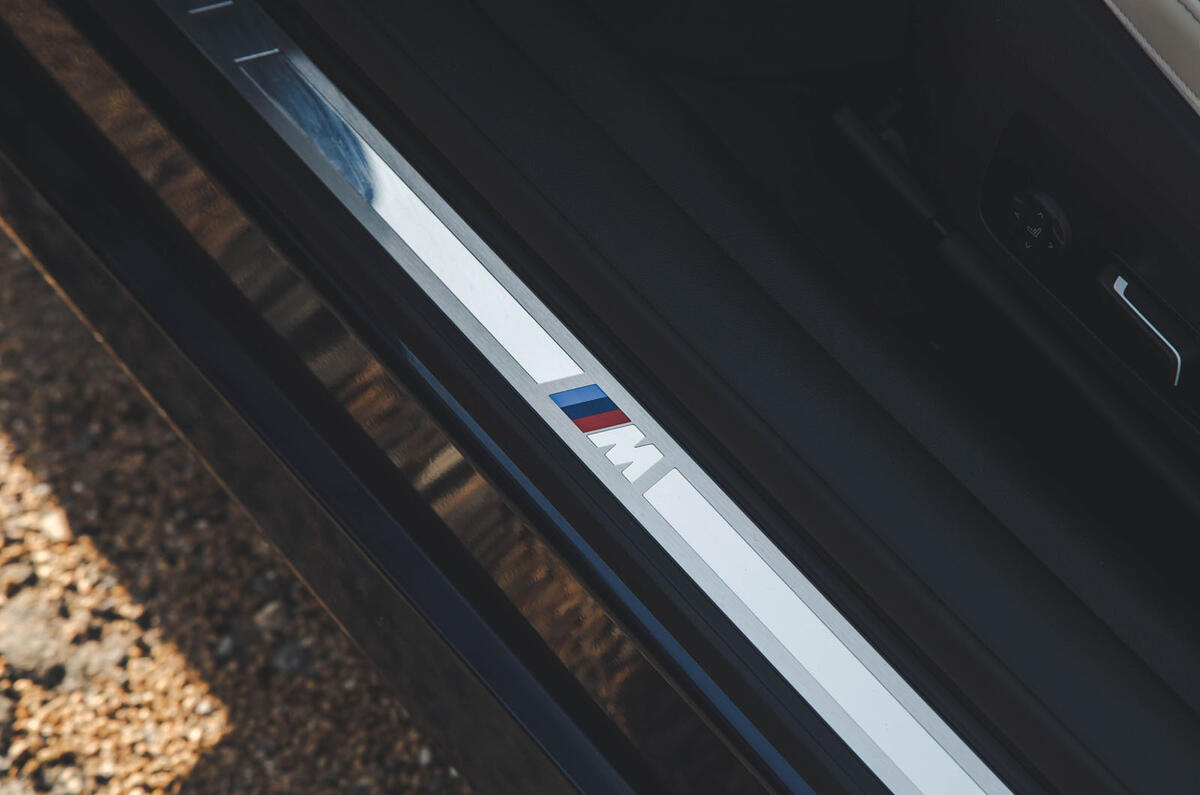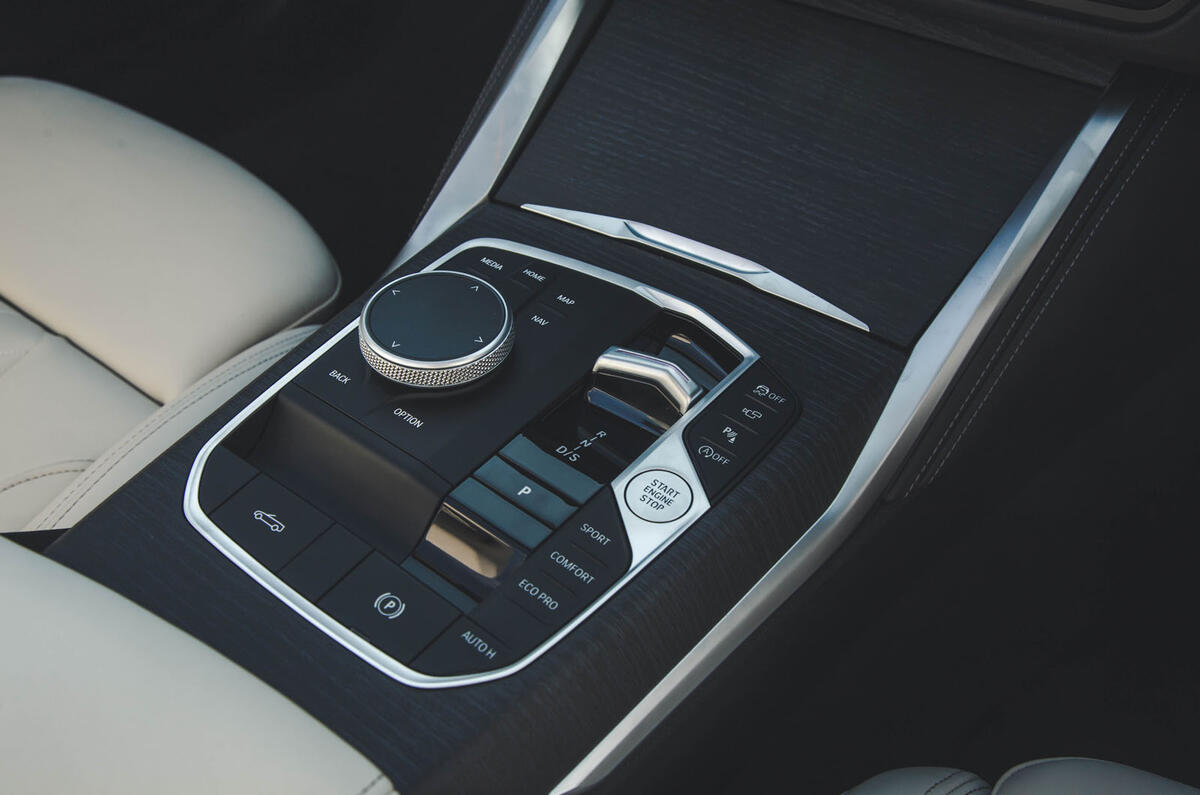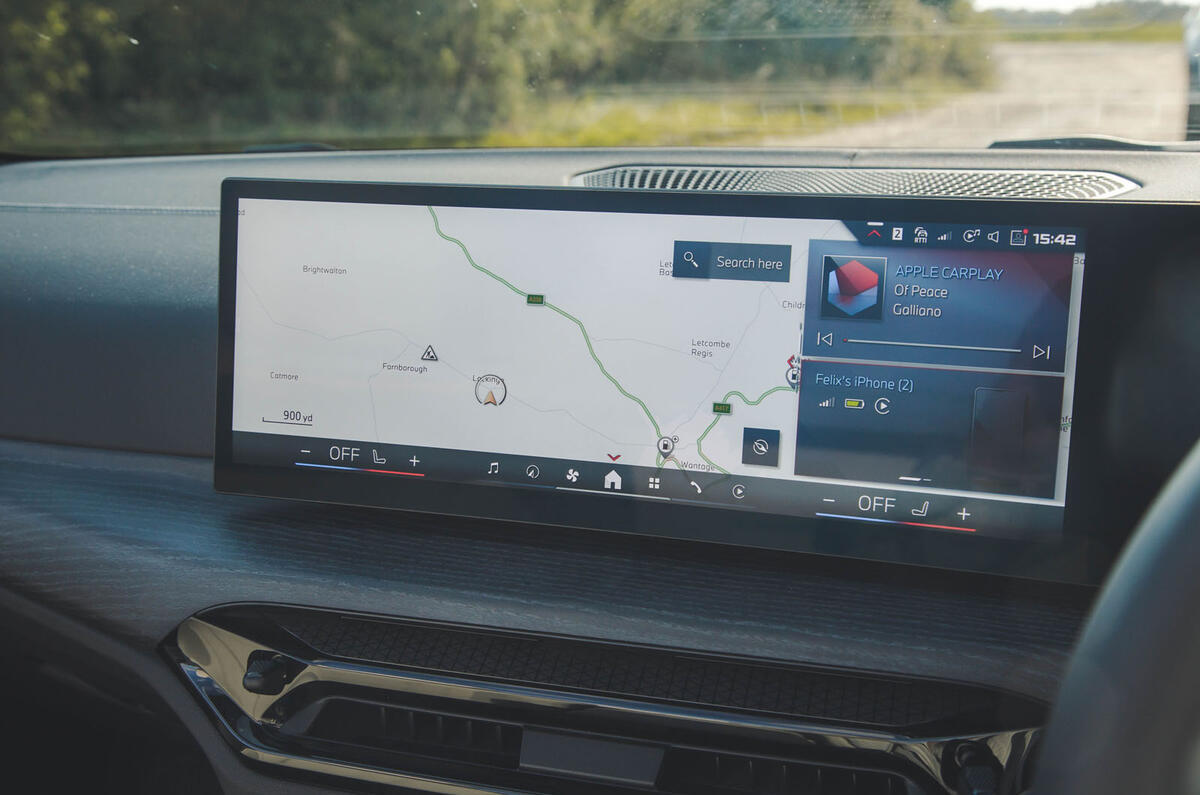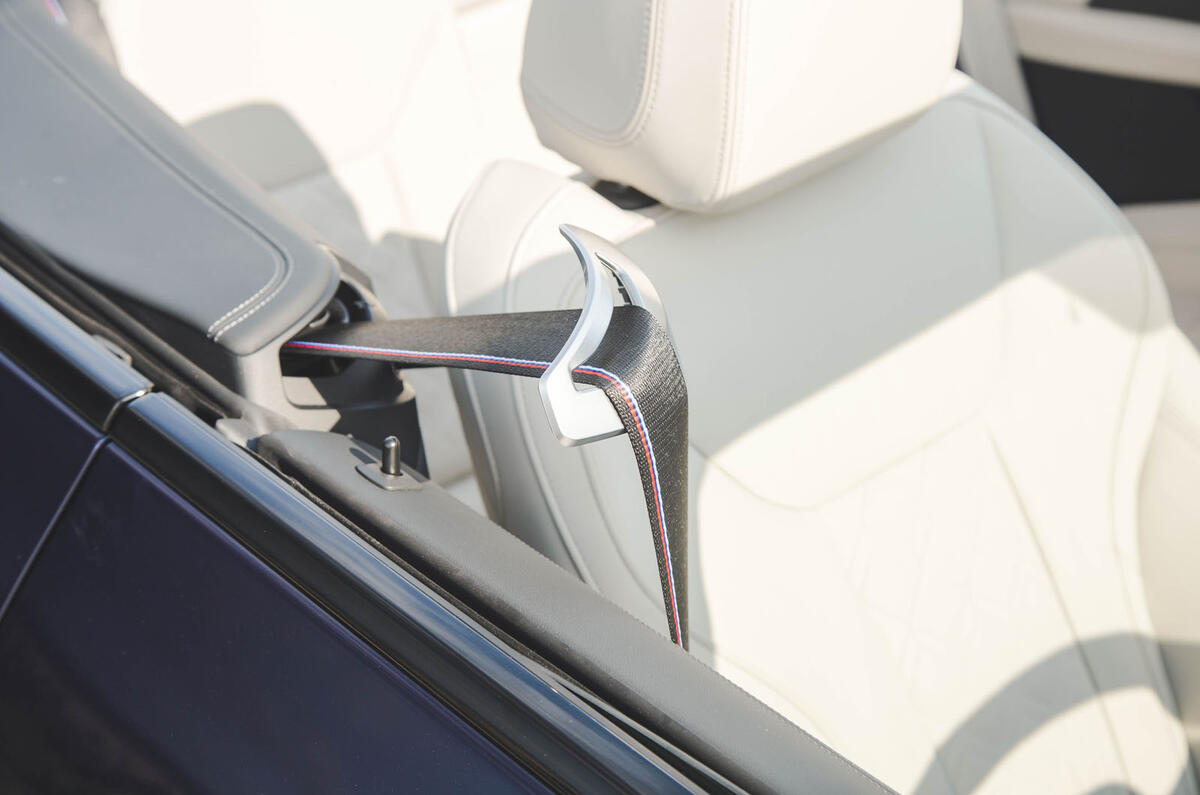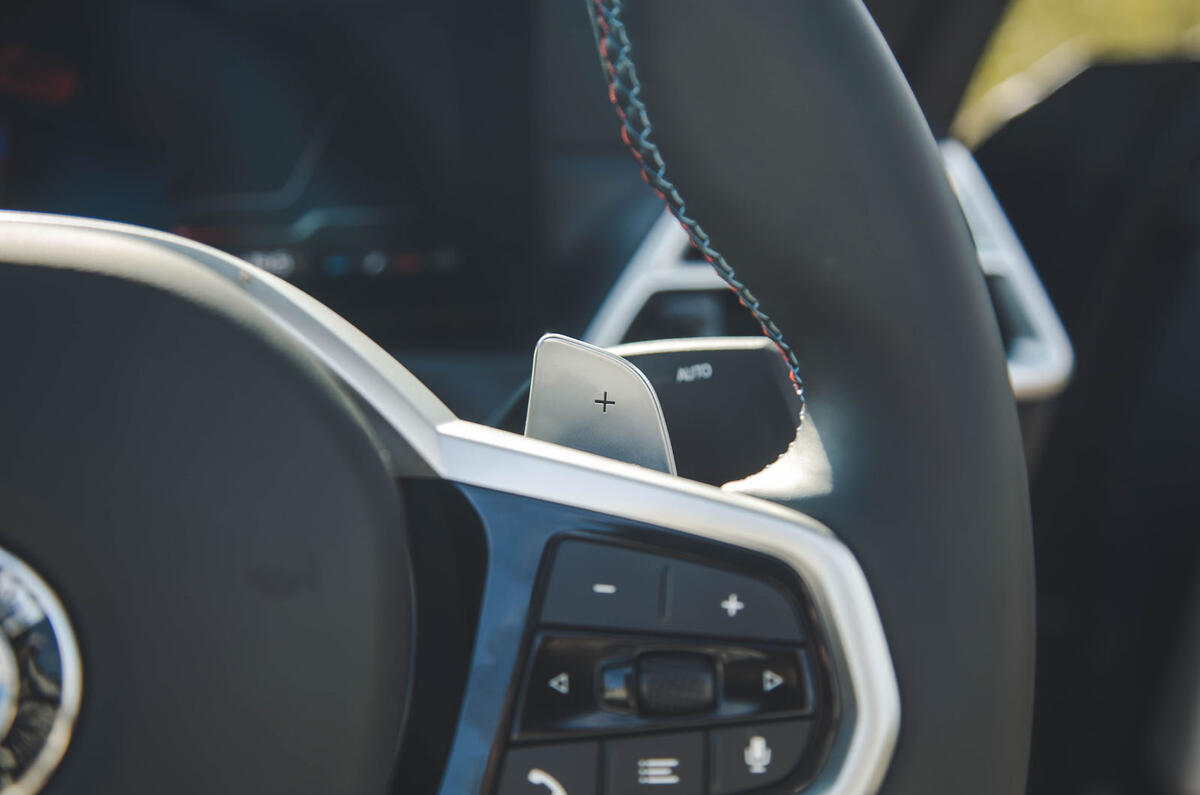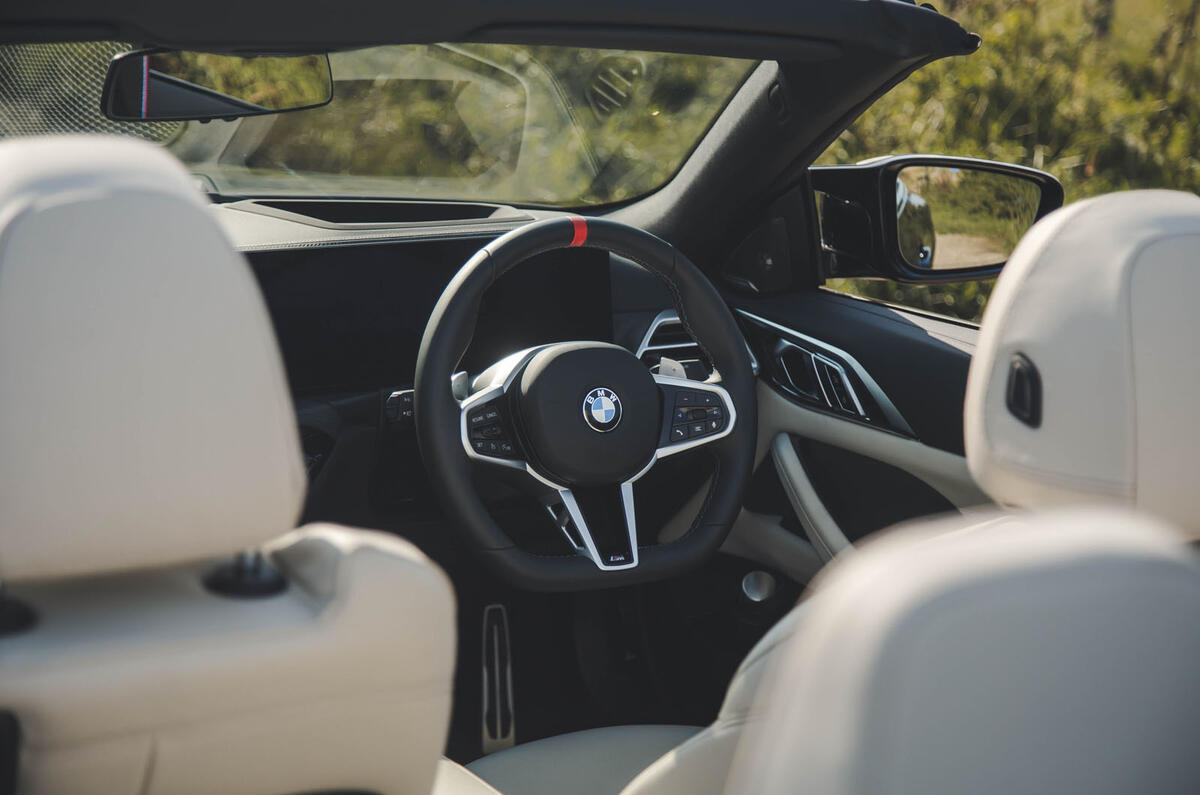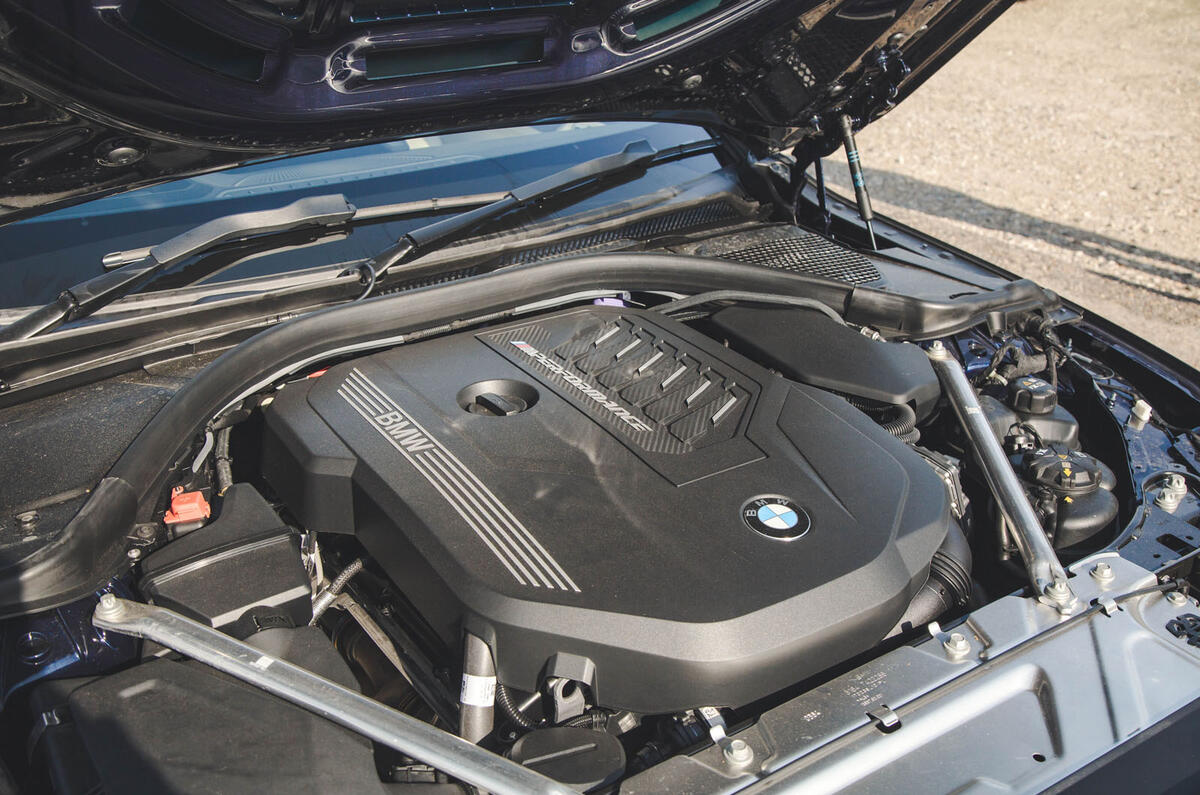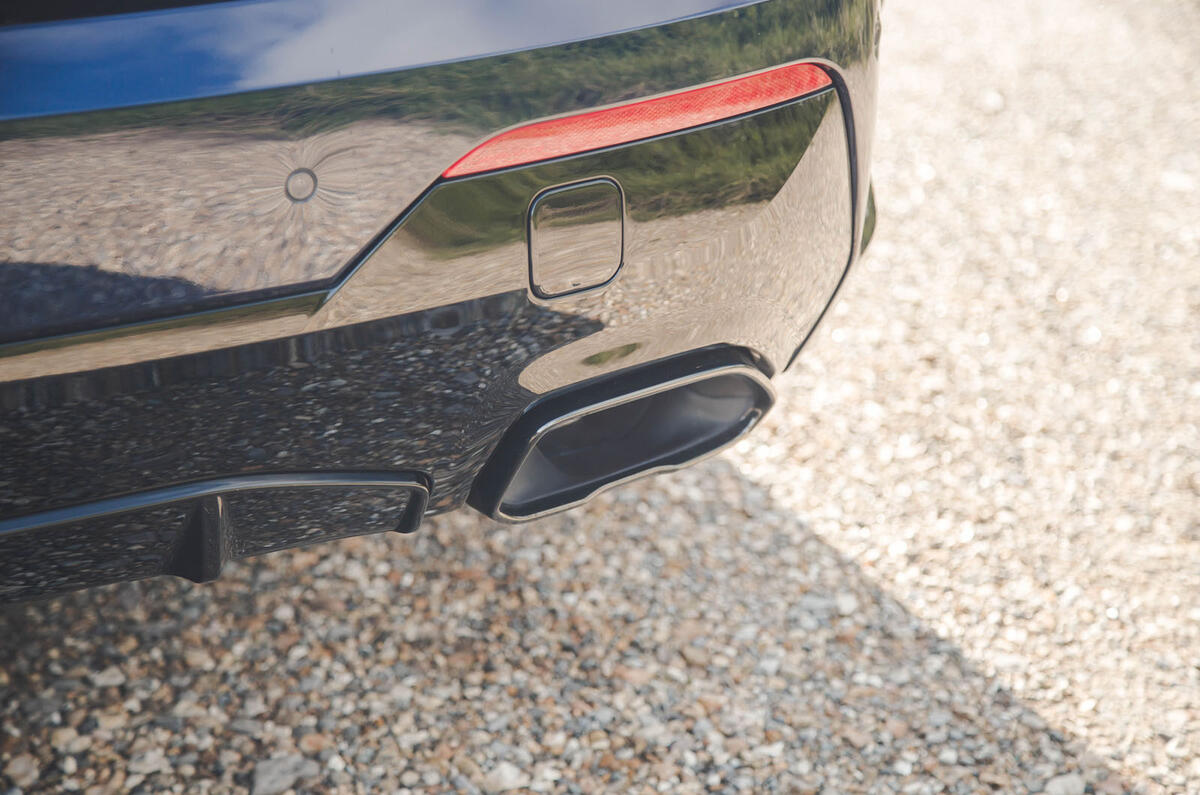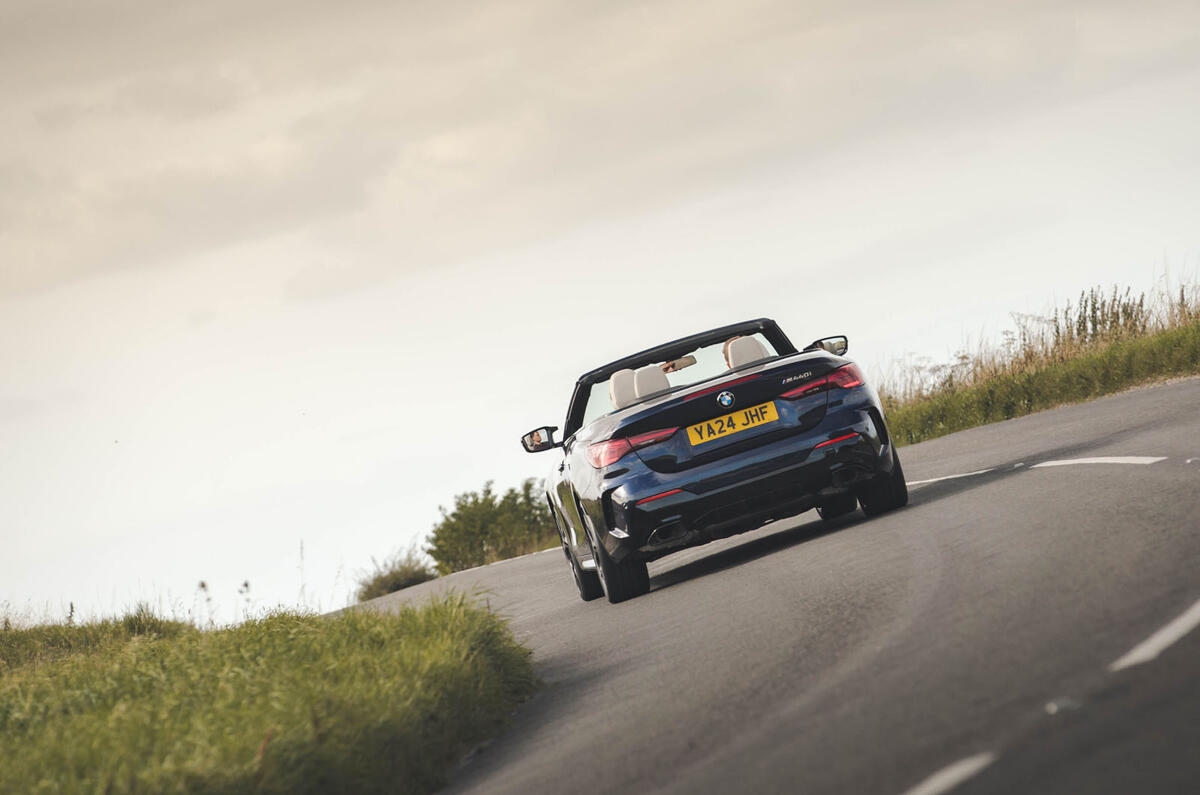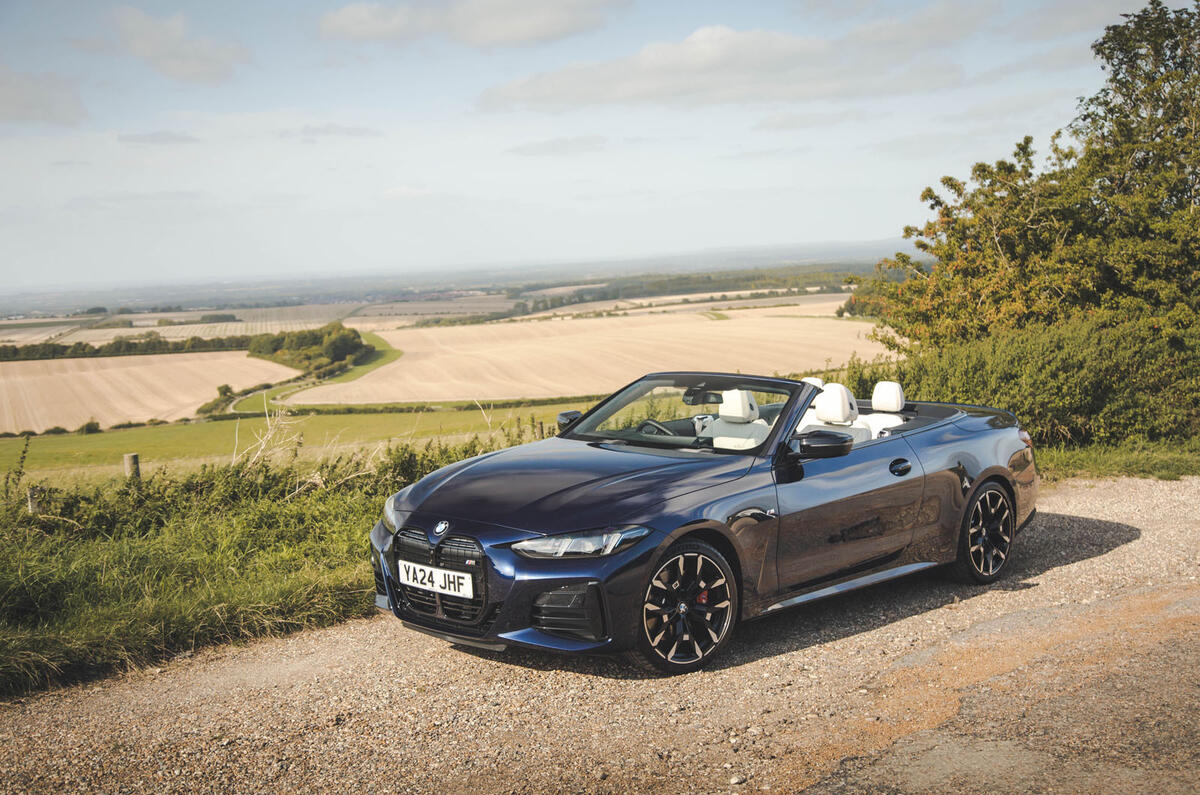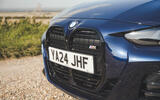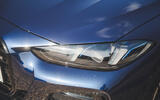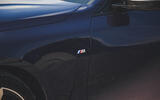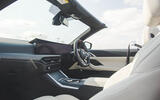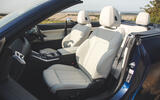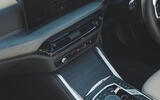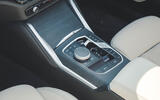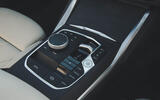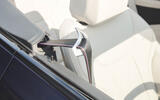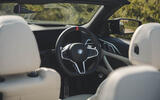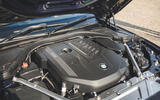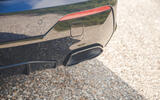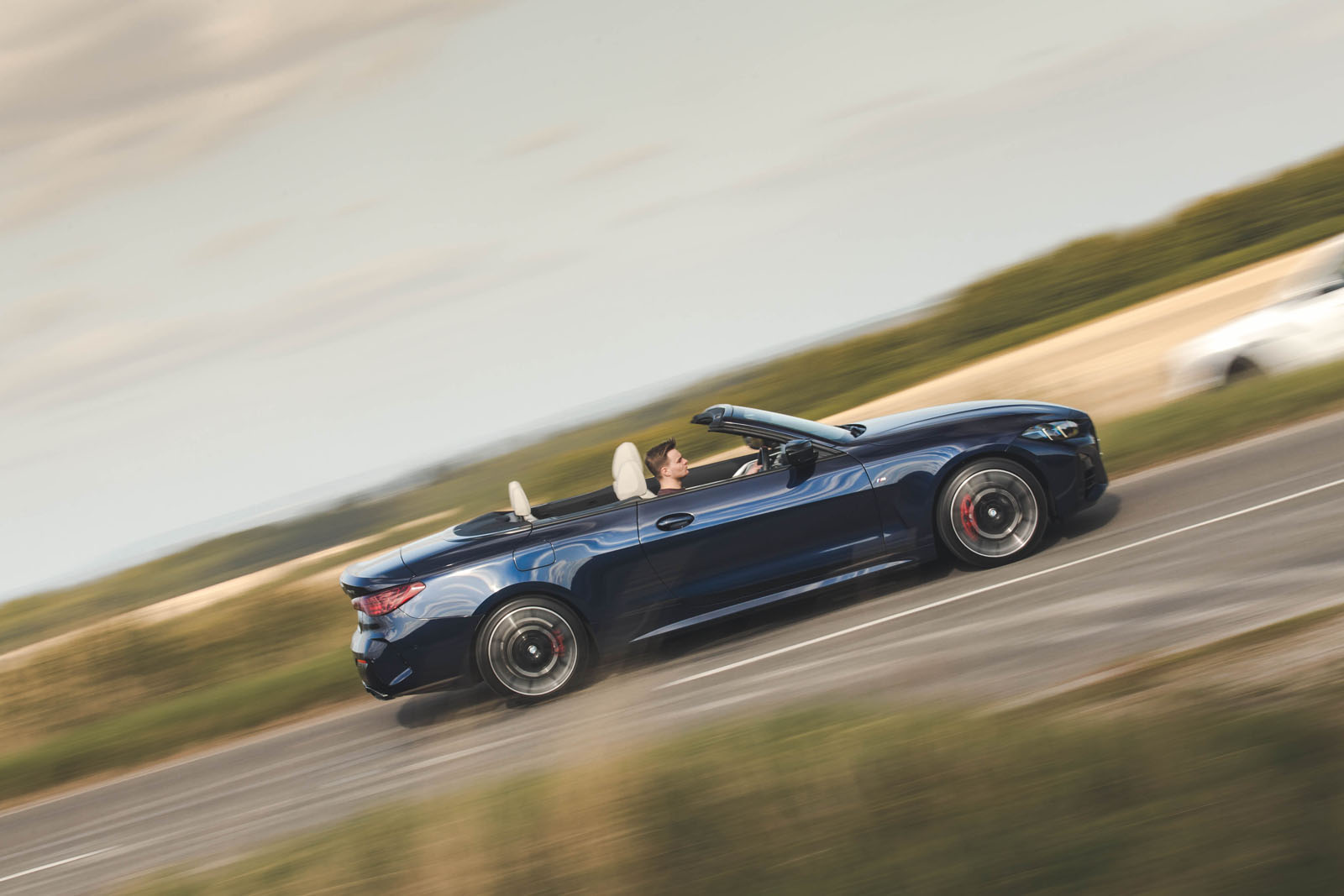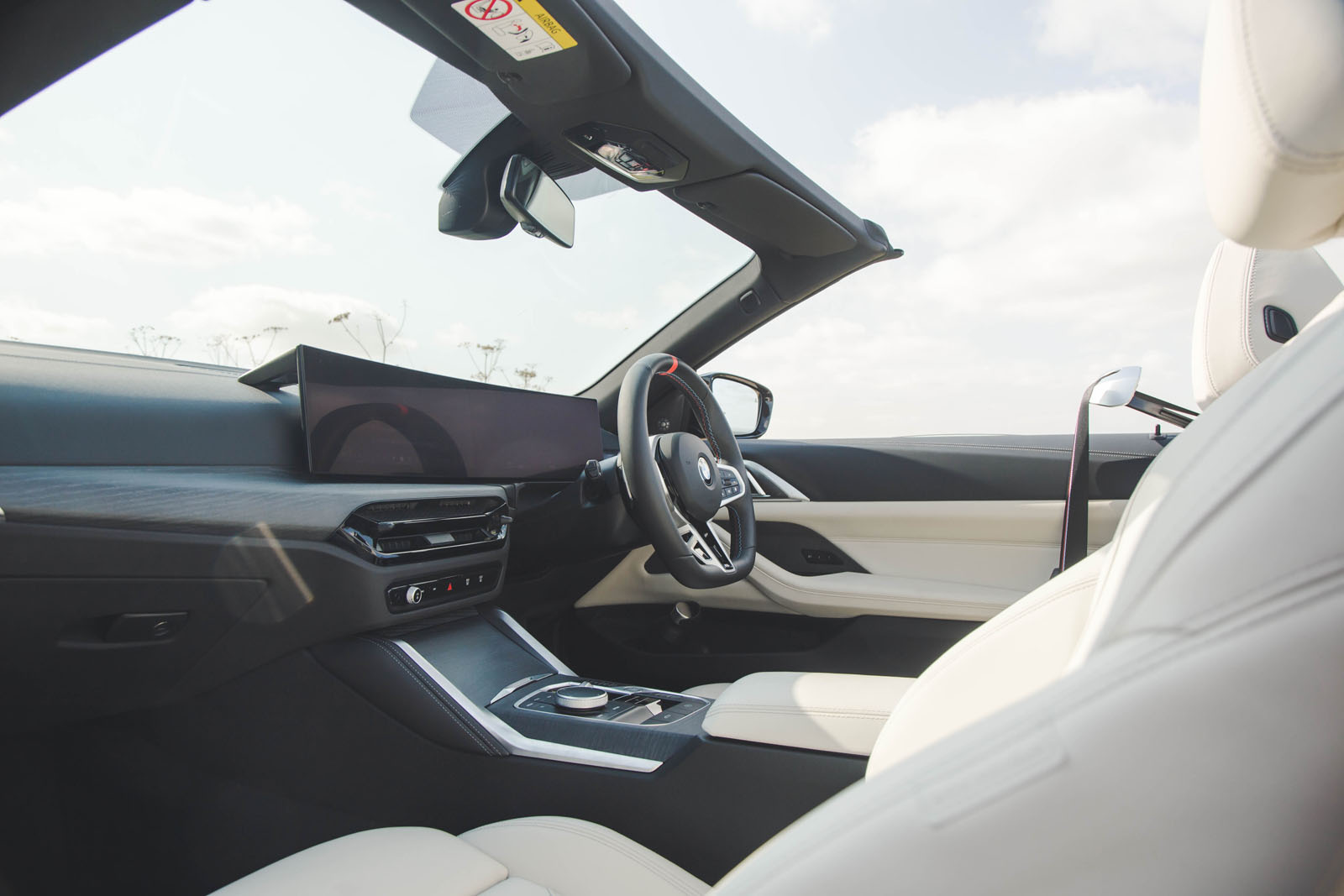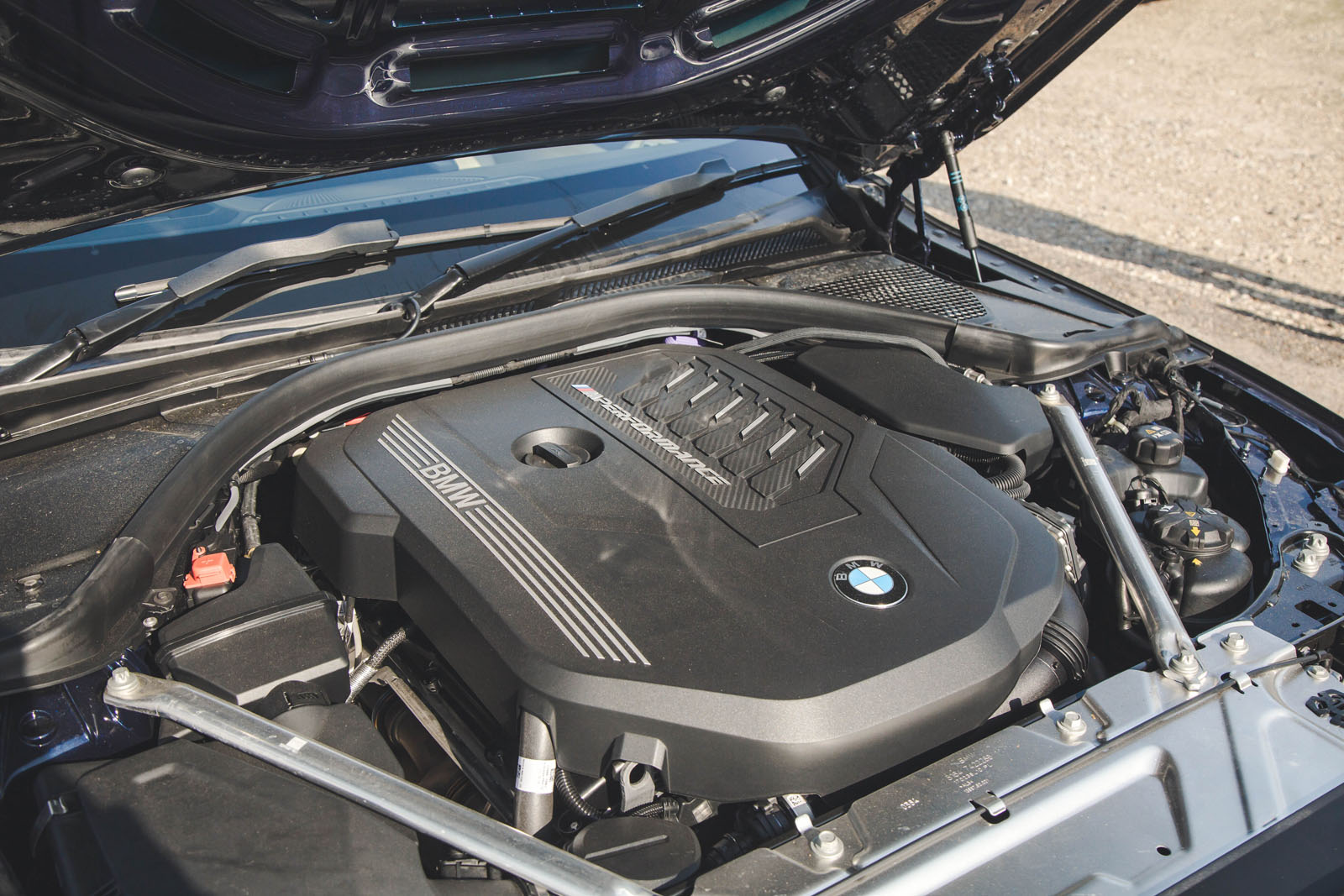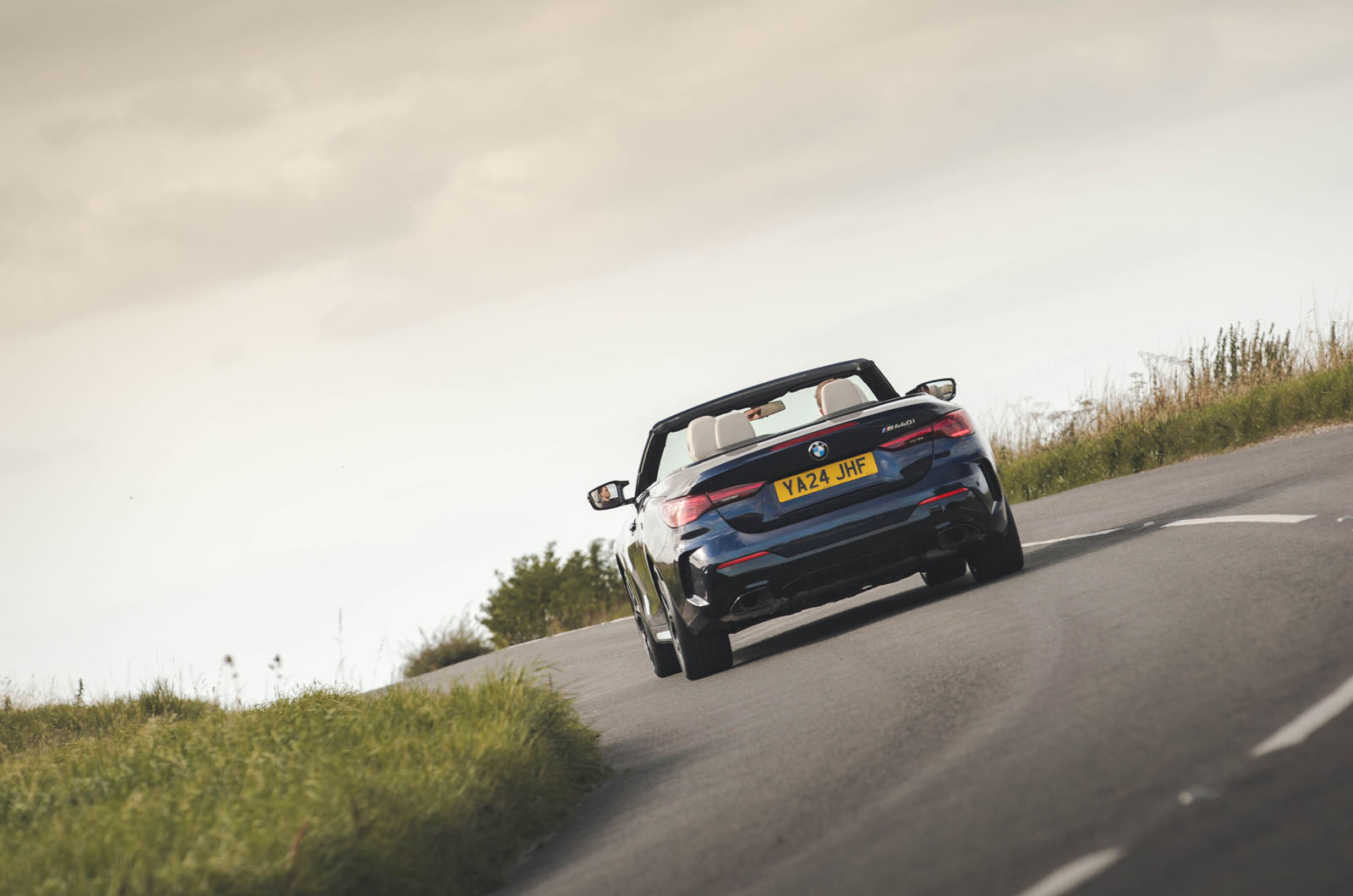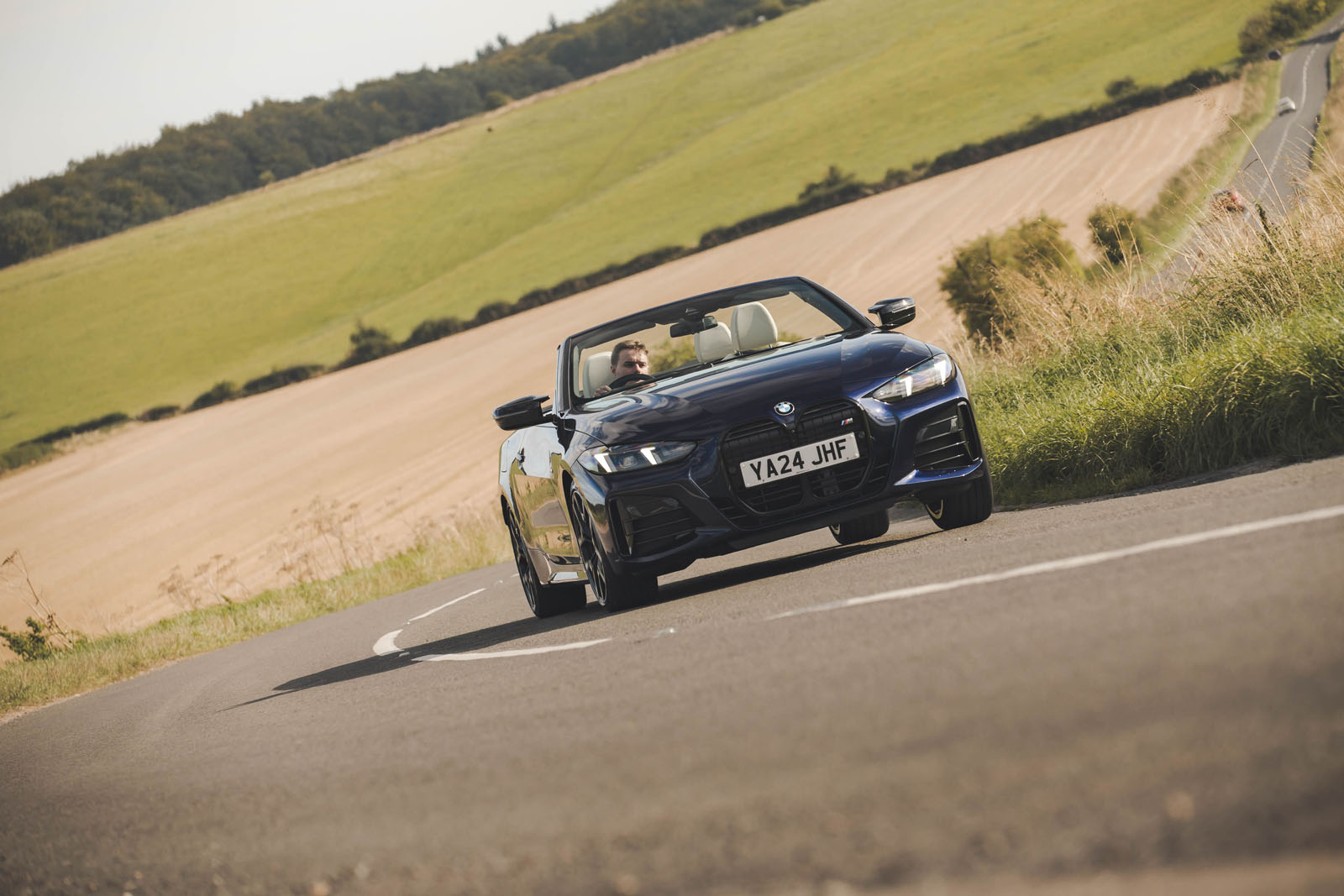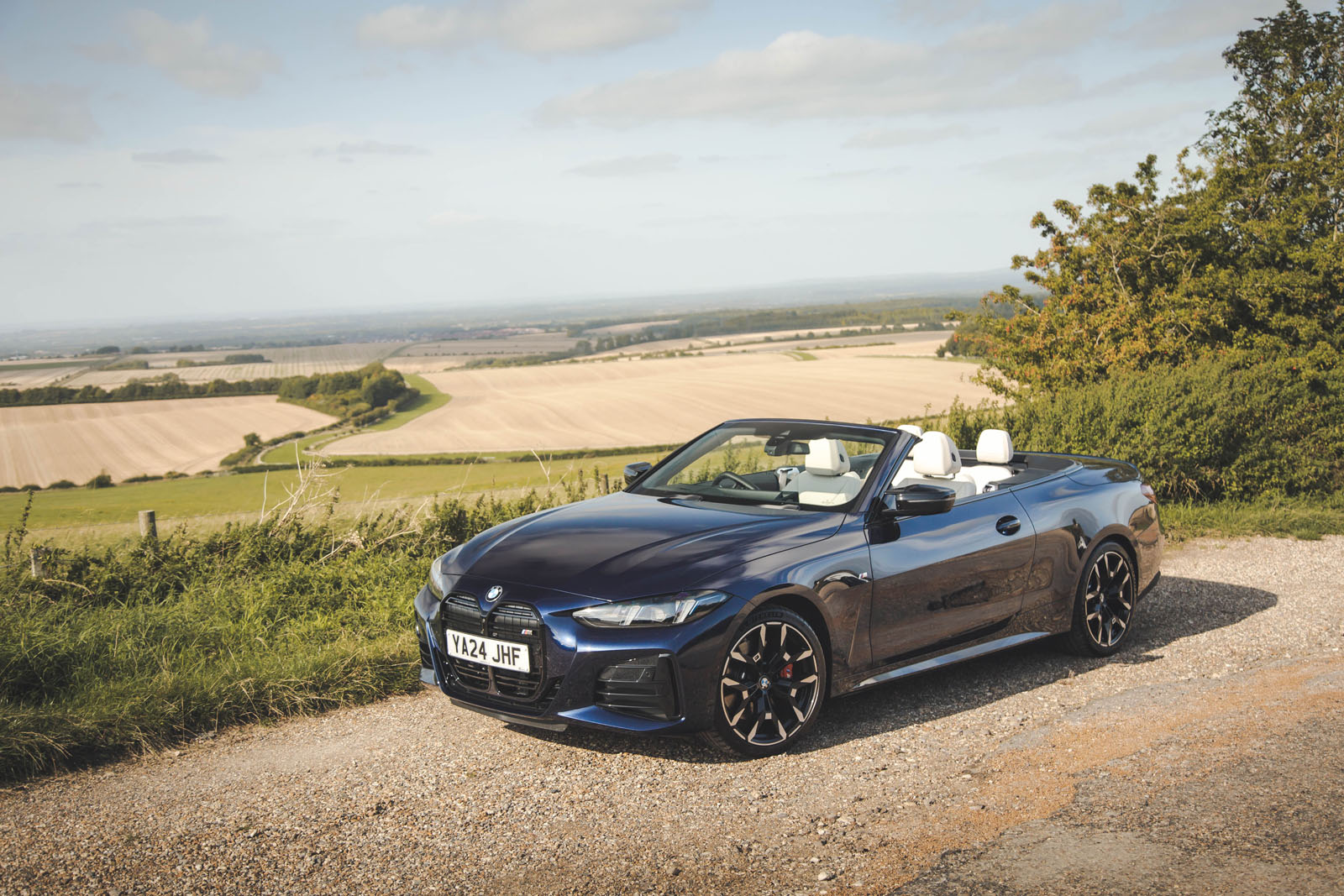BMW devotees will be well used to the extra-glitzy materials and the technological glare of the firm’s current interior design philosophy.
The days when the ambient quality and luxury of Munich’s cabin treatments were deliberately understated are long gone. Some time ago, the firm decided it needed to take on both Audi and Mercedes in that respect, and it conjured driving environments of readily apparent richness and lavishness. Pretty soon after that, the G20-generation 3 Series got an interior full of boldly hexagonal chrome and high-tech, widescreen wizardry – and that’s a treatment the 4 Series now inherits.
It’s an interior in which it’s very easy to make yourself comfortable over long distances. It feels expensively hewn and appointed and is broadly easy to interact with and to configure to your liking. The driving position is only marginally lower and more snug than that of a 3 Series. You wouldn’t call it sports car low, but then, with ease of access and long-range visibility in mind, neither should it be. The control layout is excellent, with very generous adjustment of the steering column available. Slightly wide A-pillars impinge on forward visibility to an extent, but only as is broadly common among modern cars.
Instrumentation is all digital, with the rev counter and speedometer displayed around the lateral extremes of an octagonal binnacle screen. The display themes change with the selected driving mode, but few are as easily readable as they ought to be and none of them provides a simple pairing of circular dials that could be read so easily at a glance. In cars with BMW’s optional head-up display, of course, you can never claim to be ill-informed of your road or engine speed, but on behalf of those who like to pare down and simplify what the car is telling you in order to make longer trips less tiring, BMW could still do better.
The 4 Series’ rear seats are predictably tricky things in which to berth. You’ll need to be under 6ft tall to find enough head room, although leg room is a little less meanly provided. Overall, though, the 4 Series’ back-seat accommodation is reasonable enough for occasional use. The ability to fold the rear seatbacks, split 40/20/40, is a welcome boost to carrying flexibility, meanwhile, and boot space is good.
Slightly more noticeable than the exterior visual tweaks are the changes inside for 2024, where sports seats are now standard fitment, the steering wheel is flat-bottomed and the restyled air vents are now adjusted with neat, thimble-shaped knobs that are sensibly placed and nice to twiddle.
The 4 Series was only recently a recipient of a new twin-screen wraparound display that dominates the dashboard, which would be awful news for analogue apologists were the most important in-car controls not still housed in easy-access clusters of physical buttons in the centre console. The interface now runs the latest generation of BMW's iDrive platform, which is much the same as before – graphically appealing and agreeably responsive – only now with improved menu structures that aim to give you "the right information in the right place".
The results are not transformative: this remains a highly competent and functional system, but one that just requires a touch too much eye time on the move, with a dazzling array of small and vaguely illustrated icons on the home page and too much responsibility over the climate control and so on. Happily, the trademark rotary controller remains, and there's a new fixed row of widgets on the right-hand side that allow control over various functions without delving into sub-menus. Swings and roundabouts.
The inbuilt sat-nav also gets an optional augmented reality boost, with a new function that superimposes directional arrows, parking tips and the like over an animated livestream of your forward view. A neat party trick, but of limited use if you're of the Waze or Google Maps persuasion.



